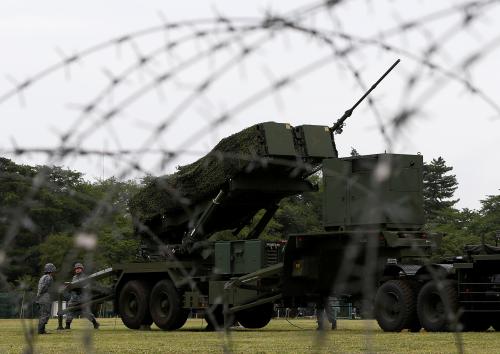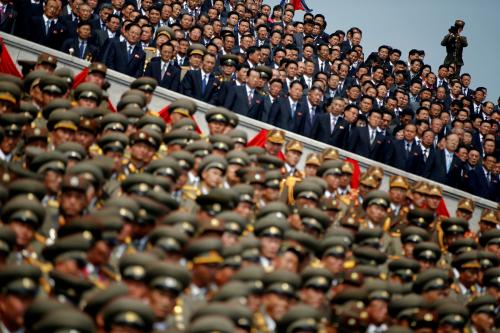Reports that President Obama is considering adopting a no nuclear first use policy have drawn criticism, including from Brookings colleagues of mine who argue that Northeast Asia might be a special case, given North Korean nuclear weapons. In addressing the North Korean military threat, they contend, wouldn’t it be better for the United States to retain the capability to initiate the use of nuclear weapons in order to raise the costs for North Korea of choosing to attack South Korea conventionally, and so deter it from making that choice?
Of course, none of us know quite how Kim Jong-un and his generals think. But with nearly 30,000 U.S. military personnel on the peninsula and several tens of thousands more American civilians working in South Korea, Kim has to know already that any massive North Korean conventional attack would kill or injure many Americans and virtually guarantee a devastating U.S. response. Public accounts of our combined war plans with Seoul make clear that we would see the defeat of the North Korean regime and reunification of the peninsula as the appropriate goals in such a scenario. Previous cases of deterrence failure by the United States, as in Korea in 1950 or Kuwait in 1990, occurred when the American presence and American commitment were far less clear.
Because the United States and South Korea have, as I have tried to demonstrate elsewhere, such overwhelming conventional military dominance over the North, there would be little reason to think that nuclear first use would be needed. Indeed, there is little way to see how the United States could benefit by initiating a nuclear war with the North—given the latter’s own nuclear arsenal. If we used nukes first, Pyongyang would likely feel far less constrained to retaliate in kind—creating a type of wild card in a war that we could otherwise confidently expect to win, in conjunction with our South Korean allies, even if at high cost.
That is, we are virtually sure to win a war that stays conventional, but could not clearly predict what might happen in a war that went nuclear. To be sure, the United States has nuclear superiority over North Korea—but it wouldn’t take many of North Korea’s bombs to decimate Seoul (and perhaps even Tokyo). In fact, if North Korea detonated a bomb over a small South Korean city and then threatened to hit Seoul with the next one unless we called off our counterattack, the use of nuclear weapons might provide Pyongyang one of its only plausible paths to remain in power after a future Korean war. Thus, I find it implausible, and unwise, that the United States would initiate the use of nuclear weapons in a future Korean conflict.
The only credible caveat, in my eyes, would be if we happened to know where all of North Korea’s nuclear weapons were—and could only reach them, perhaps deep in some underground storage site, by using a nuclear weapon preemptively. But the odds of our having such intelligence are very low, and we would likely have other means to carry out such an attack in any event.
As such, further delegitimizing North Korea’s bomb program matters more than preserving a U.S. option we are almost certainly not to need—or even want to threaten. And thus a nuclear no first use policy can cause net benefit in handling the nuclear problems of the peninsula, further isolating Pyongyang as it continues to pursue a larger nuclear arsenal.
The Brookings Institution is committed to quality, independence, and impact.
We are supported by a diverse array of funders. In line with our values and policies, each Brookings publication represents the sole views of its author(s).







Commentary
The nuclear no first use dilemma and North Korea
August 24, 2016